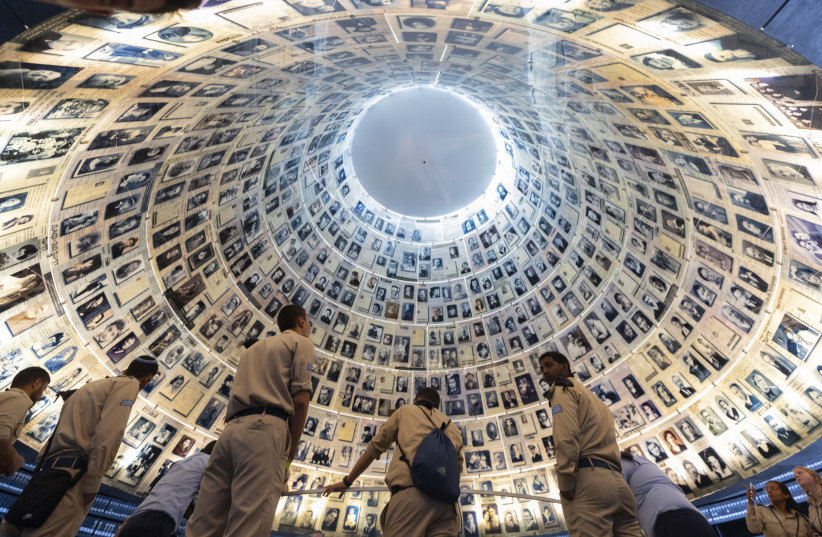'Dear Berthe. It is already the fourth day. I am now in a railroad car... I am also certain that we are going to work. We are about 700 people. 23 railroad cars... I hope, my child, that you will know how to behave as a free person, even though you are meanwhile without your parents. Don’t forget... to be a Jew and also a human being... Tell Simon everything that I write you. Tell him to study and be a good student, because he is gifted...
I am going with confidence that you will grow up and be a good, healthy and smart girl.
Your father,
Hoping to see you soon”
Aron Liwerant wrote this letter while on a transport that left the Drancy transit camp, on 4 March 1943. He tossed the note from the cattle car through one of the car’s windows, in the hope that it would get to his children. The transport, including approximately a thousand Jews, was sent to the Majdanek concentration camp, where Aron and the vast majority of the other deportees were murdered. Miraculously, his letter reached his family.

The transports during the Holocaust – a nightmare journey that was just one step in the process of extermination – tore the Jewish deportees from their loved ones and the world they once knew. Hundreds of thousands of men, women and children were crammed into cattle cars in the most inhuman conditions, and sent to death camps. This unprecedented and cataclysmic organized effort decimated the Jewish communities of Europe and North Africa, and became one of the ultimate symbols of the Holocaust.
A few of the weary captives tried to escape their doomed fate by jumping from the trains, but even these efforts seldom saved their lives. Others tossed notes or letters out in any way possible; these messages are often the last signs of life of those being taken to their deaths. For many Jews, the deportations were the beginning of the end.
Eighty years after the beginning of the mass transports of the Jews of Europe, the world pauses to remember these “Transports to Extinction,” the central theme for this year’s Holocaust Martyrs and Heroes Remembrance Day.
Although some of their identities have yet to be discovered, each and every one of these victims had hopes and dreams. They had names and hobbies. They belonged to families and communities. And they wanted us to know who they were and remember them as human beings, and not simply as faceless numbers.
When listening to the gut-wrenching stories of those who survived these atrocities against all the odds, we must remember the little girl, the ailing grandfather, the artist, the athlete, the loving mother clutching her baby, the revered Rebbe and the vigorous youth leader – people from every walk of life imaginable – on the terrible transports to an unknown destination; we owe it to them and we owe it to the future generations never to forget.
We must bring this unique Jewish and human story to humanity, and to every significant and relevant setting worldwide. It is part of our ongoing battle to stamp out antisemitism, Holocaust distortion and trivialization that rear their ugly heads once more on the global stage.
Each and every one of us has a duty to remember the victims and their stories. Each and every one of us must listen to the survivors who are still with us, and repeat their messages to the world and to future generations. To this end, Yad Vashem is dedicated to continuing being a leader in the documentation, research, study and commemoration of the story of the Holocaust.
The author serves as the chairman of Yad Vashem, the World Holocaust Remembrance Center.
